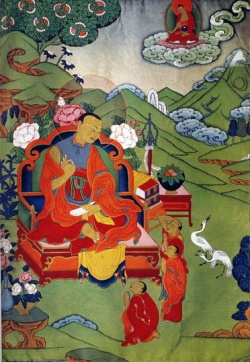Knowledge
Knowledge is a familiarity with someone or something, which can include facts, information, descriptions, or skills acquired through experience or education.
It can refer to the theoretical or practical understanding of a subject.
It can be implicit (as with practical skill or expertise) or explicit (as with the theoretical understanding of a subject); it can be more or less formal or systematic.
In philosophy, the study of knowledge is called epistemology; the philosopher Plato famously defined knowledge as "justified true belief."
However, no single agreed upon definition of knowledge exists, though there are numerous theories to explain it. The following quote from Bertrand Russell's "Theory of Knowledge" illustrates the difficulty in defining knowledge:
"The question how knowledge should be defined is perhaps the most important and difficult of the three with which we shall deal. This may seem surprising: at first sight it might be thought that knowledge might be defined as belief which is in agreement with the facts.
The trouble is that no one knows what a belief is, no one knows what a fact is, and no one knows what sort of agreement between them would make a belief true. Let us begin with belief."
Knowledge acquisition involves complex cognitive processes: perception, communication, association and reasoning; while knowledge is also said to be related to the capacity of acknowledgment in human beings.
